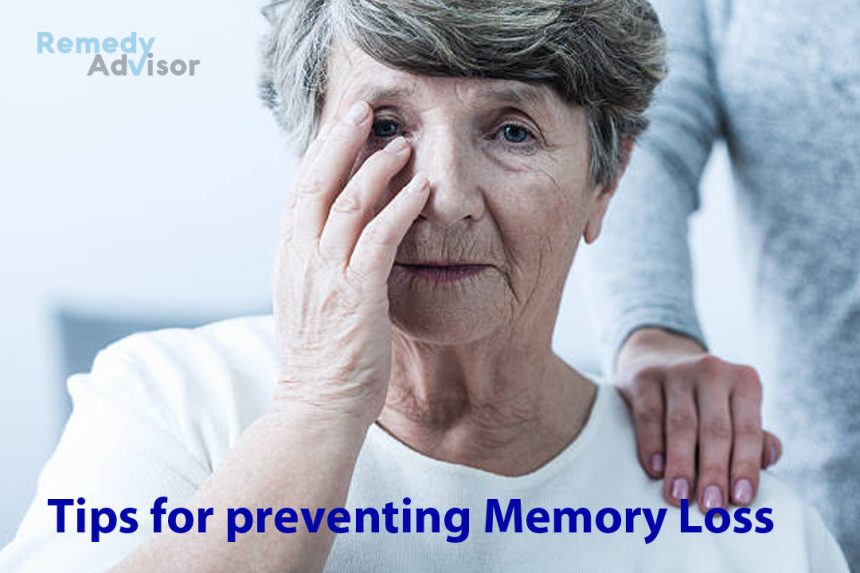Alzheimer’s disease, the dread destroyer of memory, doesn’t happen all at once. Like heart disease and many other serious ailments, its years in the making. Only recently have medical researchers nailed down the early warning signs of Alzheimer’s. People who have a condition known as mild cognitive impairment (MCI), which marks the transitional stage between normal aging and dementia, are highly likely to develop Alzheimer’s. According to a Mayo Clinic study, 15% of people with MCI have Alzheimer’s one year later, compared with 1% to 2% of those without MCI. Within four years, 50% of people with MCI will have Alzheimer’s after five years or longer, it’s 80% to 90%.
Can this downward spiral be stopped? As yet, the jury still is out, but there is reason to be hopeful. After all, 10% to 20% of people who have MCI do not fall victim to Alzheimer’s. What protects them?
A growing body of scientific evidence suggests that staying mentally active, exercising regularly and eating well can help preserve memory and slow or perhaps even halt the progression of MCI.
Normal aging or mci?
People with MCI have the same kind of lapses in short-term memory forgetting facts, names, appointments, etc. that most of us experience as we progress through our 50s, 60s and beyond but many more such instances.
They still remember how to perform everyday activities, such as driving, reading, typing and cooking. Their ability to reason, solve math problems and control emotions also is left intact.
A key criterion for identifying MCI is “subjective” memory loss that is; the person notices the lapses and thinks that they are troublesome and too frequent. Still, people differ widely in their sensitivity to their own memory performance. Often, friends and family become aware of memory problems before the person experiencing those does. Perhaps the most reliable indicator is performance on memory tests administered by a psychologist, psychiatrist, geriatrician or neurologist.
Brain to spare
MCI progresses to Alzheimer’s disease when enough brain cells are affected to seriously compromise the brain’s ability to function. The more densely interconnected your brain cells are, the greater your “brain reserve.” This allows your brain to keep on working well even if some cells have been affected.
Researchers now know that new synapses connections between brain cells can be formed throughout life.
Mental activity builds synapses the same way physical activity builds muscle. If you are concerned about your memory, it’s critical to challenge your mind.
Self-defense: Spend at least one hour daily performing rigorous mental activity. Read books on subjects that demand concentration do crossword puzzles at a level you find difficult, take an adult education course in a new discipline, work conscientiously to master a foreign language.
You can halt mental decline
Mental activity is only part of the story. The same lifestyle and diet changes that are recommended to reduce the risk for heart attack, cancer and other serious diseases maximize brain reserve as well by maintaining brain cells and stimulating the connections between them.
• Exercise
Physical activity keeps brain cells well-nourished and supplied with the oxygen they need to survive.
A six-year study of 345 Californians age 55 or older found significantly less mental decline among those who were more physically fit than the others.
Self-defense: Any regular exercise you enjoy, even 30 minutes of brisk walking daily, will help.
Ideal: Physical activities that also challenge your mind, such as ballroom dancing or learning a new sport.
• Limit calories
One source of free radicals (high-energy oxygen molecules that are known to damage brain cells) is the conversion of food to energy. The more you eat, the more toxic molecules are created.
Human population studies have linked calorie restriction to slower aging. In one study conducted at Columbia University, those who ate the fewest calories had the lowest risk of developing Alzheimer’s.
Self-defense: If you’re moderately active, aim for 1,800 to 2,200 calories per day
• Get your fruits and vegetables
Foods rich in antioxidant vitamins and similar plant based chemicals appear to protect brain cells against harmful free radicals.
In a Dutch study, people who consumed more than 23 international units (IU) daily of vitamin E had a 43% reduction in Alzheimer’s risk. Similar protection was found in those who consumed 133 mg or more daily of vitamin C.
Self-defense: Include in your daily diet antioxidant-rich foods, such as spinach (one cup provides 10 IU of vitamin E) or frozen peaches (one cup contains 235 milligrams [mg] of vitamin C)
There is less evidence that antioxidant supplements are protective.
• Eat fish
Like the heart, the brain benefits from the omega-3 fatty acids found in fish.
In a Rush University study of more than 800 older adults, the Alzheimer’s risk in those who ate fish at least once weekly was 60% lower than in those who did not.
Self-defense: Eat cold-water fish that is high in omega-3 fatty acids halibut, mackerel or salmon, for example at least once weekly.
Protective medication?
Research suggests that inflammation the same process that causes many diseases, such as rheumatoid arthritis destroys brain cells. Inflammation-fighting drugs may protect against Alzheimer’s disease.
Studies from the Mayo Clinic have found a significantly lower incidence of Alzheimer’s among people who took non-steroidal anti-inflammatory drugs (NSAIDs), such as ibuprofen (Advil), regularly for at least two years.
Other studies suggest that people who take cholesterol-lowering statin drugs are also less likely to develop the disease.
The evidence is still too weak to justify regular use of NSAIDs or statins for everyone. These drugs have risks NSAIDs can cause gastrointestinal bleeding and statins can cause side effects, such as muscle pain and liver problems.
If you have MCI, however, the drugs’ potential benefits may outweigh the risks. Talk to your doctor.







